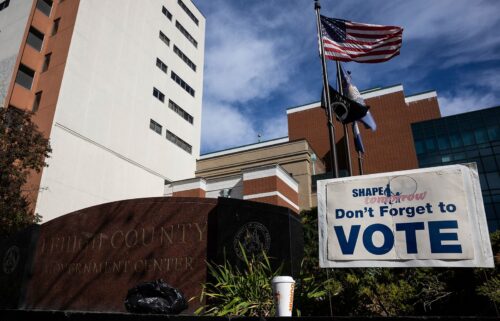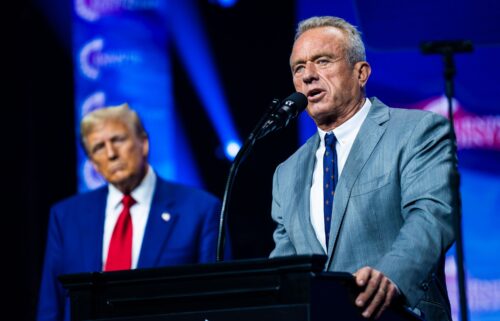Biden and Cabinet officials in touch with rail companies and unions as threat of strike looms

By Phil Mattingly, CNN
President Joe Biden and members of his Cabinet have been in touch with the unions and companies involved in the high-stakes freight-rail labor negotiations, as alarm about a possible strike continues to grow inside the administration.
Top White House officials have been closely watching US freight rail labor negotiations, keenly aware that any strike would create significant economic and political risk for the Biden administration. For months, officials have sought avenues to forestall a strike that would threaten to cripple critical arteries of the US economy, but those efforts have grown more intense — and elevated — in recent days as the Friday deadline for an agreement looms.
The possibility of strike by unions representing more than 90,000 workers at the nation’s freight railroads has businesses nationwide worried. A strike could bring nearly 30% of the nation’s freight to a grinding halt, according to data from the Bureau of Transportation Statistics.
Labor Secretary Marty Walsh, who delayed a scheduled departure for Ireland over the matter, has played a central role in urging an agreement between labor unions and freight rail operators, and administration officials have made clear that a strike represents an unacceptable outcome for the US economy.
Walsh’s efforts, which included a call on Sunday for the parties to reach a resolution ahead of Friday’s deadline, are just part of the dozens of calls and meetings Cabinet and administration officials have had between the two parties in an effort to find a resolution, officials said.
Biden’s National Economic Council has consistently held meetings on the issue, according to a White House official. Biden has been personally briefed on the status of the talks and is “closely following the actions of his Cabinet and economic team in this space,” the official said.
Biden prevented a strike two months ago by imposing a cooling off period during which a panel he appointed, known as a Presidential Emergency Board, looked at the disputed issues in the negotiations and issued a recommended settlement.
That 60-day cooling off period is due to expire at 12:01 a.m. ET Friday, and Biden does not have the power to prevent a strike at that time. Only Congress can act to prevent a work stoppage, either by imposing a deal on the two sides or to extending the current cooling off period.
The PEB recommended multiple annual raises back to July 2020, when the previous contract had been set to expire. They would give workers an immediate 14% raise, as well as additional back pay for the hours they worked since 2020. There would be more raises going forward, resulting in a 24% pay increase over the five-year course of the contract that would run from 2020 to 2024, as well as annual cash bonuses of $1,000.
The PEB’s wages recommendations are somewhat less than the unions requested and somewhat more than management had previously offered.
The administration’s efforts to avert a strike continued on Monday, with Biden and his top Cabinet officials taking a direct role in conversations to try and find a pathway to end the impasse, the official said.
The economic risks of a work stoppage are substantial for a backbone element of US food and energy supplies. But so too is the political risk for Biden and Democrats, who have ridden a wave of momentum from major legislative victories and signs of deceleration in record-high inflation two months before the midterm elections.
“I know that the administration, the White House, is closely monitoring the negotiations, and we certainly hope that they will be successful in avoiding a damaging supply shock to the economy,” Treasury Secretary Janet Yellen said Sunday on CNN’s “State of the Union.”
The-CNN-Wire
™ & © 2022 Cable News Network, Inc., a Warner Bros. Discovery Company. All rights reserved.
CNN’s Kaitlan Collins and Chris Isidore contributed to this report.



